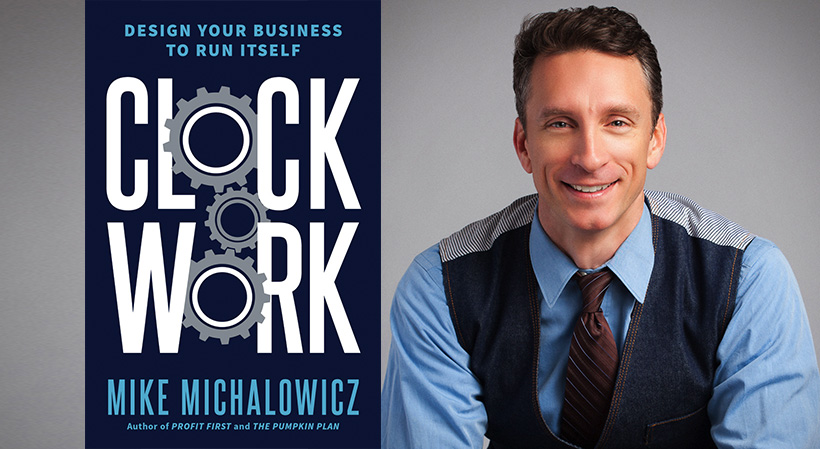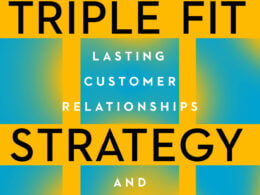The following is excerpted from “Clockwork: Design Your Business to Run Itself” by Mike Michalowicz with permission of Portfolio, an imprint of Penguin Publishing Group, a division of Penguin Random House LLC. Copyright © Mike Michalowicz, 2018.
Nicole Wipp is an attorney who runs her own firm in Milford, Michigan, about 45 minutes outside of Detroit. Before she designed her business to run automatically, her firm was focused on litigation, which she found overwhelming in terms of her time and the emotion involved in dealing with her clients’ cases. Then Nicole had a baby and took a four-week maternity leave (sounds like the “four-week vacation” test for the business, doesn’t it?). During that break, she decided she needed to make a permanent change.
When I was picking Nicole’s brain about this book, she said, “I had to be brutally honest with myself, Mike. I had to think not only about what I should be doing, but what I should not be doing. Maybe I was capable of something, but was I really suited for it?”
Nicole analyzed her work habits and discovered that she was not good at traditional lawyer work, such as writing briefs. She was great with ideas, but not seeing them through. When she was fundamentally truthful about her strengths and weaknesses (and you need to be, too), Nicole realized, “I’m better at the first 20 percent of an idea, and the last 5 percent, but I am not good at everything in between. I needed people to handle the other 75 percent.”
Related: 4 Expert Tips for Becoming a Well-Balanced Entrepreneur
As she evaluated her workload, she monitored the energy involved in each task. “Tasks that drained me, even when I was just thinking about them, those tasks were not playing to my strengths. They caused me to procrastinate, and dredged up negative feelings that impacted me, and my team.”
For some of you, daily work may feel like it’s slowly chipping away at your soul. That experience must be transformed in order for you to not only love your business, but to grow it to its full potential.
To do that, you must give the tasks that drain your energy to someone else. With those tasks off your plate, you can operate in the zone of flow—your own zone of genius.
Considering her own zone of genius, Nicole decided to transition her firm out of litigation and became the Family & Aging Law Center, the changed name showing the new intent of the firm. She not only got rid of the tasks that drained her; she eliminated the traditional lawyer offerings that she was not great at delivering. After hiring and restructuring staff, Nicole went from working 100-hour weeks, 30 days a month, to working just five days a month. And she did it without dropping her annual income. Many entrepreneurs fear their personal income will drop off when they hire someone, so I pressed Nicole to explain that point further.
If you are familiar with the Profit First method, there is a powerful, simple add-on you can use to make sure your business is ready for that next hire. Set up a bank account that is called “Future Employee.” Then start allocating a percentage of your company’s income to that account, representative of the salary that you believe you will be paying. This will prove your company can afford the employee before you hire them. And when you do make the hire, you already have a cash reserve for their salary. Nice!
“For a brief period after I started this process, my income did drop a bit. But it went back up as soon as I found the right team and they came up to speed,” she said. “Even though there was an initial drop, on an annual basis, I made more.” The lesson there is, when you consider hiring, look at the annual impact, not just what might happen in the next few weeks.
Nicole’s firm is now more profitable than ever. She accomplished this by hiring the right people to do the right things, which freed up her energy so that she could maximize what she does best. Then she had to balance that team so that they also did what they do best.
“I didn’t start off with a good team,” Nicole told me. “There was a 90-day run when I cried every day because my team was so bad. But what I realized was, it was me, not them. I had to reset and restart, and make sure I was hiring people based on their zone of genius, which complemented my zone of genius.” (That’s a lot of geniuses!)
Nicole works just five days a month and she’s more successful than ever. She doesn’t do any QBR work [Editor’s note: “Queen Bee Role” work, or the single action your business hinges its success on], which for the firm is spot-on legal work. She focuses on managing the business flow. Do you see how replacing yourself—especially in terms of the work you do that does not feed your soul—can only help your business to grow?
From the moment you make your first hire, part-time or full-time, or bring on your first virtual assistant or contractor, your company has multiple gears and you need them to mesh harmoniously. If you build a balanced company from the get-go, you will have a stronger foundation and it will be easier and smoother building from that point. Master the skill of balancing your team, starting with your first employee. This is a designing skill and mastering it early will carry you far.
Sign Up: Receive the StartupNation newsletter!
As Verne Harnish says in “Mastering the Rockefeller Habits,” we need to get the right people, doing the right things, right. This is true. Very true. But there is one additional element. The right people need to be doing the right things in the right amount. My modified version of that maxim reads like this: Have the right people, do the right things, in the right portions, right.
Here’s how that sentence breaks down:
- “Have the right people . . .” This means that you know the super strengths of your team, that you know their zones of genius. Not what they do most, currently, but what they are best at doing and get the most joy from. When a person is great at something and loves doing it, they will excel. Unfortunately, most business owners and leaders don’t know the strengths of their people. Determine your people’s strengths (and evaluate the strengths of people before you bring them on) and use this knowledge to put them in a position where they will excel.
- “ . . . do the right things . . .” Identify what your business needs and what it doesn’t. Trash what it doesn’t need so that no one is distracted by these tasks. Transfer the work to the right people. Trim the work that can be made more efficient. When you do that, you are aligning the right people with the right things.
- “ . . . in the right portions . . .” People and your business both need balance. All the doing in the world will fall short if there is no clear direction. And all the direction in the world is useless if no one is taking action on the strategy. Even if they are great at something, your team needs balance, and they need their own appropriate amount of variety.
- “…right.” This is about education. Provide your people with the relevant captured system. Have a clearly defined outcome and process to follow. Educate them on what the QBR is and the necessity to serve and protect it.
“Clockwork” is available now at fine booksellers and can be purchased via StartupNation.com.






